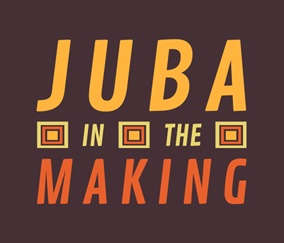A Fisherman’s Tale
Charles Moga started working as a fisherman in the early 1980s and knows one thing for sure: he will “do this work until [he] dies”.
He is a son of Juba. Born and raised in what is now the capital of South Sudan, he has never lived anywhere else. He has witnessed the city’s fast-pace growth over the past ten years, and he likes to recall the days when the river used to be populated by hippos until, he says, “the sound of guns” chased them away, after the outbreak of the second Sudanese civil war in 1983.
Throughout the years, he has observed changes in the climate. He noticed that the arm of the Nile where he usually goes fishing was getting smaller. “Where will we go, if the water gets finished?” he asks, adrift on his wooden boat, a luxurious landscape of mango trees moving smoothly behind him.
In spite of his concerns, Moga is a man who has got something precious in South Sudan: a job, a livelihood. “I work with my sweat” he says, wearing torn clothes and lacking up-to-date fishing equipment, but still aware of his luck. He has struggled to earn his independence, to run his own business, with his family and his fellow fishermen. It all became possible when he decided to build his own boat.
The Food and Agricultural Organisation (FAO) is providing training to Charles Moga and other small scale agricultural actors in South Sudan, who not only sustain their lives through their work, but also provide fresh and affordable food to the local market.
Note: You may also want to visit Hai Gabat station, the part of Juba where Charles Moga lives and works.
A Fisherman’s Tale
Duration: 9min
Year: 2018
Production: Juba In The Making
Camera Operator, Editor and Director: Florence Miettaux
Filming Assistant: Wani James
Translation: Silvano Yokwe Alison
With thanks to FAO South Sudan and especially:
Pierre Vauthier
Lieke Visser
Taban James Elias
Hai Gabat


